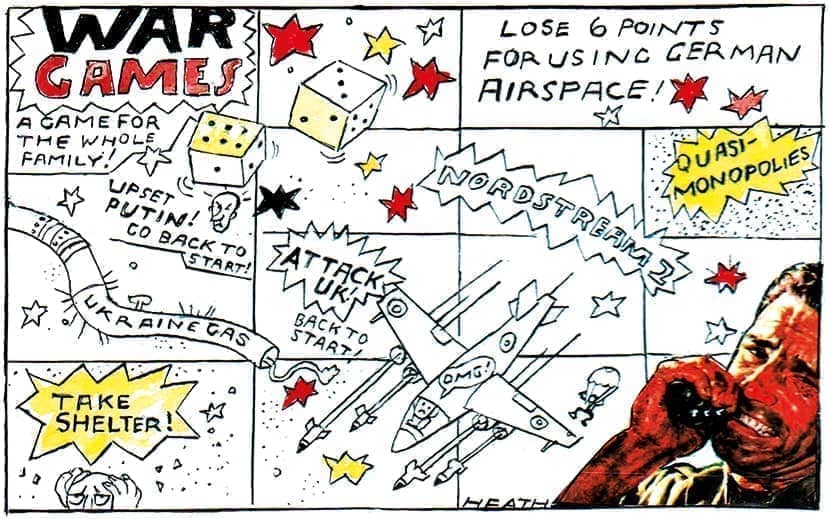Oil will shoot up to $130 a barrel. The prices of natural gas will double in a few hours, tipping a few more energy companies into bankruptcy. The tech stocks will crash, currency traders will panic, and the bond markets will crater. If Russian tanks do start to roll across the Ukrainian border this week then we can expect carnage in the financial markets. Indeed, they have already fallen sharply in anticipation of a possible war. And yet, the important point is surely this: it won’t last.
True, the most serious armed conflict on European soil since the end of world war two is a serious matter. But geopolitical events rarely make much difference to the markets for more than a few days. We have plenty of evidence to tell us that, after a few days, the impact quickly fades. In fact, of the 28 most significant geo-political events of the last 100 years the Wall Street indices were higher six months later on 19 occasions. Such as? Well, after the 9/11 attacks on New York for example, the index dropped by 11 per cent in a day of frantic trading, but it recovered all those losses over the next month. After President Kennedy was assassinated, the S&P 500 recovered all its losses in a couple of days. After the Suez Crisis, it took only four days to claw back the admittedly rather minor 1.5 per cent fall in the index. True, sometimes it takes longer. After North Korea invaded the South – in many ways a similar event to Russia invading Ukraine – the market dropped by 12 per cent but regained that in 82 days. After Pearl Harbor – a bigger deal, all things considered – it took 307 days to recoup the 19.8 per cent fall in the index.
The point remains, however. For all the short-term volatility, the market typically steadies and recovers very quickly. In this case, that might be more true than ever. After all, an actual invasion is hardly going to come as a huge surprise to anyone right now, unlike, for example, the Kennedy assassination, or 9/11, neither of which came with any advance warning. Most of the reaction has already been priced in. True, a Russian invasion of Ukraine will have long term consequences for the global economy. If, as seems likely, it is part of a pact with China it may mark the establishment of a new Sino-Russian economic order that steadily displaces the US as the dominant financial power. But that will play out over decades, and in unpredictable ways that no one can honestly foresee right now. In reality, no matter how crazy the trading gets later this week if the tanks start to move across the border the losses will be quickly recovered, and the main indices will get back to where they were remarkably quickly.






Comments